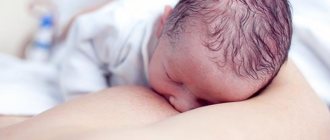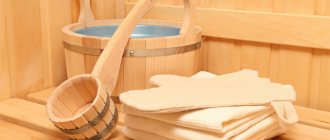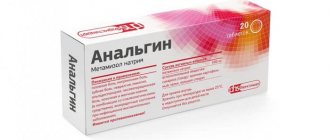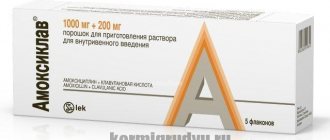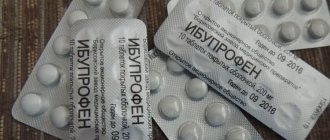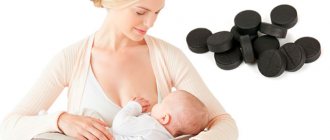Throughout the entire lactation period, a young mother should be very careful about taking any medications, as they can have a negative effect on the baby’s body. Nasal drops during breastfeeding are no exception to the rule. It should be recalled that after childbirth and the start of breastfeeding, the woman’s immune system is greatly weakened, and therefore is extremely susceptible to any airborne infections. However, not all of them require immediate medical intervention.
Runny nose in a nursing mother
If a woman develops symptoms of rhinitis during lactation, then in 70% of cases this is a manifestation of ARVI. Most often, a runny nose is accompanied by a rise in the patient’s body temperature, pain in muscles and joints, hoarseness and other symptoms of a cold.
Many experts believe that if a cold can be treated with home remedies in 2-3 days, then a visit to the doctor can be postponed. This formulation of the question is quite controversial when it comes to a nursing mother.
A woman should understand that her runny nose is usually caused by viruses that affect the mucous membrane of the nose and maxillary sinuses. In medical practice, this group of pathogens is called rhinoviruses, hence the term for the disease - acute rhinitis.
The very state of swelling of the mucous membrane is the protection of the young mother’s body from viruses and bacteria. The mucus produced in the nose leads to the destruction of foreign microbes and contributes to the patient’s speedy recovery.
Nasal drops during lactation most often do not destroy viruses and germs, but help relieve swelling and increase oxygen access to a woman’s lungs.
Most often, a young mother’s body copes with colds on its own within 6–7 days. If no unforeseen complications arise, nasal drops during breastfeeding can only be used to facilitate breathing at night, when swelling of the mucous membrane does not allow the nursing lady to rest peacefully and gain strength.
How to treat a runny nose
Treatment of a runny nose cannot be an independent process, since nasal discharge is always a symptom of some disease. In order to reduce the manifestations of this symptom, doctors recommend following the following rules:
- If you have a cold or acute respiratory infection, you should stay in bed whenever possible in order to lighten the load on the body and give it the opportunity to quickly cope with the disease.
- Warm, plentiful drinks help remove toxins from the body, which are products of the activity of viruses, which alleviates the general condition.
- There is no need to dry out the air in the room, since drying out the mucous membrane reduces secretion and does not allow the immune system to properly respond to viruses and infections. The air humidity in the room should not be lower than 60%, so during the heating season or hot summer it is advisable to use a humidifier.
- An increase in body temperature is the result of the body’s fight against viruses and bacteria, so it should be brought down only when it exceeds 38.5 degrees. An increase in mother's body temperature during breastfeeding does not affect the taste and quality of milk. On the contrary, during this period it contains additional antibodies that will protect the baby from the disease or make it easier.
- In case of difficulty breathing, you can use folk remedies or medications.
Read also:
Development of thrush in women after childbirth and treatment
If the secretion released from the nose has a greenish tint and is also accompanied by a headache, then the woman should definitely consult an otolaryngologist, because such symptoms may indicate inflammation of the nasal sinuses.
Vasoconstrictor drugs
Naphthyzin during breastfeeding
Most women, at the first signs of nasal congestion, turn to the well-known drugs “Naphthyzin” and “Glazolin”. These medications belong to the group of vasoconstrictor substances, and their use provides rapid relief of nasal swelling and easier breathing.
“Naphthyzin”, “Glazolin”, “Nazivin” and other representatives of vasoconstrictors, despite different active ingredients, have almost the same effect on the patient’s body, alleviating the condition and returning clean, calm breathing and a sense of comfort to the young mother.
For a long time, the use of these drops was recommended in the Russian Federation, Ukraine and other countries of the post-Soviet space, but now the situation has changed somewhat. Recent studies have shown that naphthyzin during lactation still has a negative effect on the baby’s body.
It turned out that if the mother has little milk, the concentration of the drug in the child’s body can increase sharply. This leads to increased excitability of the baby, causing convulsions and even a breakdown in heart rhythm.
However, that’s not all: during breastfeeding, naphthyzine interacts with the milk hormones of the female body, causing a decrease in lactation and further increasing its own concentration in the baby’s blood.
It is for this reason that WHO and foreign medicinal reference books have revised their recommendations and assigned this group of medicinal drops the second level of danger when breastfeeding.
Experts have recognized the vasoconstrictor drug “Nazol” as the safest for use by nursing women. Created on the basis of phenylephrine, nasal drops are even recommended for the treatment of children from a very early age, and if the instructions for the medicine are strictly followed, it can also be used by young mothers during lactation.
Nasal drops for nursing women
To reduce the risk of pathological changes in the child’s body when the mother is treating rhinitis, major pharmaceutical companies currently offer nasal drops for nursing mothers based on antihistamines and hormones. Hormonal medications for relieving swelling of the nasal mucosa “Fluticasone” and “Nasonex” are considered absolutely harmless for the baby.
Having a pronounced vasoconstrictor and antibacterial effect, these drugs practically do not enter the baby’s body through mother’s milk. However, to achieve complete safety, it is recommended to use these drugs 20 - 30 minutes after feeding.
Antihistamine drops “Azelastine” and “Loratadine” have proven themselves well in the foreign and domestic markets. These medications also practically do not enter the baby’s blood; they are included in the basic therapy of acute rhinitis and nursing women and are recommended in many countries of the world for use during lactation.
Treatment of ARVI in a nursing mother should be comprehensive and gentle, therefore vasoconstrictor drops during lactation should be used only after consultation with the attending physician and under his constant supervision.
If any signs of a pathological reaction on the part of the baby appear, the use of this group of medications should be stopped.
Drops with antibiotics and antiseptics: is it possible or not?
In medical practice, one of the basic principles for many centuries remains this: “Do no harm!” The use of nasal drops containing antibiotics to treat a common runny nose applies specifically to such cases.
It should be noted that antibiotic-based nasal drops are simply prohibited for use, since it is quite difficult to accurately dose the amount of a medicinal substance that has entered the human body through the mucous membrane. During breastfeeding, the use of such drugs is completely excluded.
Situations are possible when the severity of a woman’s condition requires antibacterial therapy, but the child’s feeding is stopped. In addition, with such a severity of the disease, it is unlikely that nasal drops will be the method of introducing the medicine into the body.
Prescribing antibiotics also requires appropriate laboratory testing to determine the sensitivity of bacteria in a woman’s body to a particular drug.
The pharmacy chain widely advertises “Isofra” nasal drops for nursing mothers, made on the basis of the antibiotic framycetin. Most experts believe that this medicine does not pass into mother’s milk and is safe for the baby, however, its independent use can lead to chronic inflammatory processes in the upper respiratory tract of a young woman.
Also, various antiseptics are not a panacea. These drugs are usually recommended for rinsing the nose in a fairly large volume and are used extremely rarely as drops.
From all that has been said, we can conclude that nasal drops based on antibiotics and antiseptics for a nursing mother are completely prohibited. Violation of this rule threatens disastrous consequences for the child’s health.
We recommend reading the article about treating colds in a nursing mother. From it you will learn about the possibility of using antiviral drugs, prohibited medications during breastfeeding, the effectiveness of homeopathic remedies and traditional medicine methods.
Nazivin drops during breastfeeding
No one is immune from colds. Especially a woman who has just carried and given birth to a child. After all, the body directed all its forces towards bearing the fetus, recovering from childbirth and maintaining lactation. It’s no wonder that right now there is such a high probability of catching a cold, although there is absolutely no energy or time for this. How to help a nursing mother? What nasal drops can be used during breastfeeding? What composition of drops is considered the safest for a child?
Most often, nursing mothers are plagued by common seasonal viral diseases. Their main symptoms are:
- Increased body temperature.
- Cough.
- A sore throat.
- Runny nose.
But it would still be a good idea to consult a doctor to rule out another nature of the disease (for example, bacterial). After all, now a newborn baby directly depends on the health of the mother. Everyone knows that most children are immune to many diseases for the first six months or even the entire period of breastfeeding, but no one can be one hundred percent insured.
It happens that, despite a strict diet and serious food restrictions, a runny nose in a nursing mother causes an allergic reaction. In this case, after an appropriate examination, the doctor will definitely select medications that will not harm the baby.
As a doctor speaking to the people on behalf of civilized medicine, Komarovsky categorically does not recommend immediately using nasal drops during breastfeeding. He advises at the first signs of infection to lie down, dress warmly and create the most comfortable conditions for recovery: cool air and almost one hundred percent humidity. If you follow these recommendations, the doctor promises that nasal drops during breastfeeding, if the runny nose is not complicated, will not be needed and the cold will go away on its own in 3-7 days.
As an additional treatment, Evgeniy Olegovich prescribes to his patients:
- Drink plenty of warm drinks.
- Diet.
- Drops of saline solution into the nose (salt water solution).
- Regular ventilation of apartment premises.
The doctor reminds that to protect the family and child from infection, it is useful to use gauze masks (which must be changed every two to three hours). It also reminds that folk remedies such as honey, lemon, raspberries and garlic not only do not bring any scientifically proven benefits in the fight against infection, but can also be dangerous for an infant.
It is worth noting that the use of any drug during breastfeeding, even after consulting a doctor, should be started gradually and with small doses. This will determine the presence of possible allergic reactions in the baby.
The safest and even healthiest are drops and sprays based on water and sea salt. They perfectly moisturize the mucous membrane and can be used during pregnancy, breastfeeding, and even in children from the first weeks of life.
Oil drops for a runny nose are relatively safe. During lactation, they usually do not cause allergic reactions due to herbal components (Vitaon, Pinosol and others). They have a good antimicrobial and anti-inflammatory effect.
To relieve swelling from the nasal mucosa and quickly relieve symptoms, vasoconstrictor nasal drops (during breastfeeding) containing xylometazoline are usually prescribed. When breastfeeding, doctors do not recommend using them for more than three to five days. It is also advisable for the mother to use children's drops, since they contain a much lower dosage of the drug. You can try to do without vasoconstrictor drugs altogether or use them only before bed.
There is such a drug as “Derinat” (nasal drops). They are absolutely harmless during breastfeeding. It is recommended to drip it even for prevention. Based on reviews, one can judge that these drops are often prescribed even to infants if someone in the family gets sick.
Officially approved nasal drops during breastfeeding:
- “Aquamaris”, “Physiomer” (contains water and salt).
- "Derinat" (active ingredient - sodium deoxyribonucleate).
- "Pinosol", "Vitaon", "Delufen" (oil-based).
- "Euphorbium Compositum" (homeopathic drops).
- “Nazivin”, “Tizin”, “Nazolin”, “Naphthyzin” (contains xylometazoline).
Doctors strictly prohibit instilling, rinsing, or even simply lubricating the nose with breast milk. It has been scientifically proven that sweet, warm milk creates a favorable environment for the proliferation of bacteria and viruses. So such a medicine will not only not cure, but will also seriously aggravate the situation.
Very often, homeopathic medicines are recommended as a powerful weapon against all adversities at any age and position. Proponents of such treatment shout at every step about the dangers of “chemical” drugs and promote their methods.
It is not surprising that homeopathy cannot cause any harm. The famous “peas” and “droplets” contain such a tiny amount of active substance that the body is simply unable to notice it. So you can actually use such medications even without a doctor, because all their benefit lies in the placebo effect. Therefore, you can very often hear reviews that homeopathy cures everything, because if a person really believes that this is a medicine, then with a high degree of probability he will recover.
Let's start with the fact that antibiotics are never taken just because of a runny nose. There is always a serious reason for taking such a medicine and a prescription from the attending physician. If it has already happened that the usual runny nose has already started, a severe cough has appeared, the temperature does not subside, but rises higher, the state of health worsens and pain of various localizations appears, you simply cannot do without a trip to the doctor.
A doctor may prescribe antibiotics to a nursing mother if the benefits outweigh the risks. But you should remember: feeding will have to be stopped temporarily (until recovery), and the milk will have to be expressed and poured out (so that it does not burn out, and later you can resume feeding the baby). It’s okay that the child will have to spend a couple of weeks on formula, the main thing is that the mother gets better soon.
Experienced mothers say that if there are no other symptoms, breastfeeding is not only possible, but also necessary to continue. When a mother is sick, the baby receives antibodies with milk, which the adult body begins to produce in the first hours of illness. Thus, according to the law of nature, the baby cannot become infected. But still, doctors recommend giving up kissing during the period of illness and, of course, not coughing on the child or blowing your nose if he is nearby.
- It is advisable that the child can at least sleep in a non-infected environment - try to provide the baby with a separate room during the period of mother’s illness.
- Ask dad or grandma to walk more with the child.
- Carry out wet cleaning of the apartment at least once a day.
- Ventilate the apartment every two hours.
- Try to feed your baby wearing a gauze bandage.
- Continue breastfeeding - this is the best support for your baby's immune system.
Are there all-natural nasal drops (for breastfeeding)? Traditional medicine recommends how to treat a runny nose in this case:
- Rinse the nose with a salt solution. This same method, by the way, is recommended by traditional medicine (salt is diluted in warm boiled water in a ratio of approximately 1 to 30).
- Nasal drops from aloe/kalanchoe juice (aloe leaf is cut and squeezed out, diluted with water and dropped into the nose).
- Drops of beet juice (squeeze the juice out of raw beets and drop 2-3 drops into your nose).
- Rinse with chamomile decoction and drop it into the nose.
A tablespoon of dried chamomile flowers is poured into a glass of boiling water and left for several hours. The resulting solution is filtered and instilled into the nose. The infusion can also be diluted with water and used to rinse the nasal passages and throat.
- Herbal inhalations. Can only be used if there is no fever.
What you need to know about immunomodulators
Various immunomodulators are widely used to treat viral diseases, especially in the upper respiratory tract. Most of them are based on human interferon and are recommended for use during pregnancy and lactation.
The most famous are “Grippferon” and “Derinat”, however, while the safety of the first drug for babies has been practically proven, research on the second is still underway. When taking these medications, you should remember that all biologically active substances. Therefore, the use of these nasal drops is possible only after consultation with a doctor.
Other ways to treat rhinitis in breastfeeding women
There are many other drugs for the treatment of runny nose during lactation. First of all, these are antimicrobial agents of plant origin.
Antimicrobial nasal drops
Pinosol during breastfeeding
The most common medicine in this group is Pinosol nasal drops. This substance of plant origin is made on the basis of aromatic oils of eucalyptus, mint, etc. The medicine is approved for use during pregnancy and lactation.
However, as in the case of immunomodulators, an obstacle to the regular use of this drug was its high allergic activity. Therefore, it is better to use essential oils not in the form of drops, but as inhalations. In this case, the possibility of developing allergic reactions is reduced significantly.
Folk remedies for the treatment of runny nose
The main method of dealing with a runny nose for a nursing mother is inhalation. For it you can use essential oils of eucalyptus, menthol, pine buds, oregano. Menthol essential oil can be used intranasally, instilling 2-3 drops.
To relieve swelling of the nasal mucosa, you can use a heated bag of salt. But it is strictly prohibited when a bacterial infection occurs; this threatens the spread of the disease and the development of complications.
As an alternative to seawater-based preparations, you can use a homemade saline solution. To do this, you need to dilute 1 teaspoon of table salt in a liter of warm boiled water.
What methods should not be used when breastfeeding
It is forbidden to instill, rinse the nasal passages or simply wipe the nose of both mother and child with breast milk. It has been proven that warm breast milk is a favorable environment for the cultivation of pathogens. Using breast milk for a runny nose can seriously aggravate the course of the disease and cause complications.


